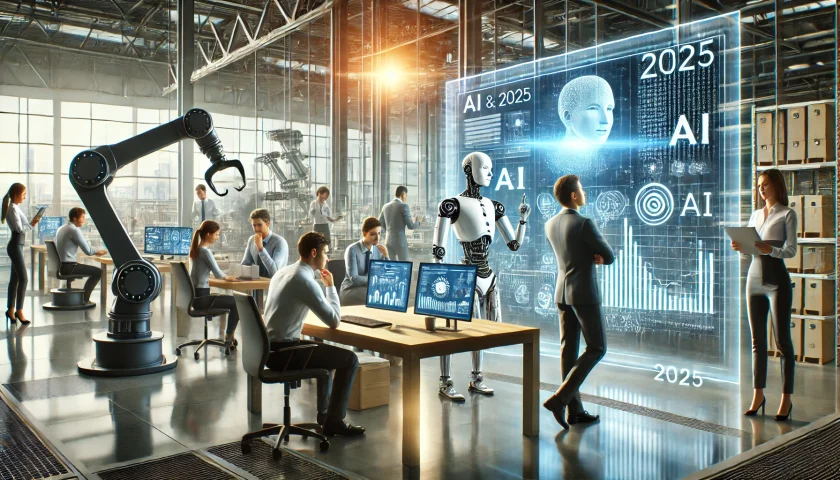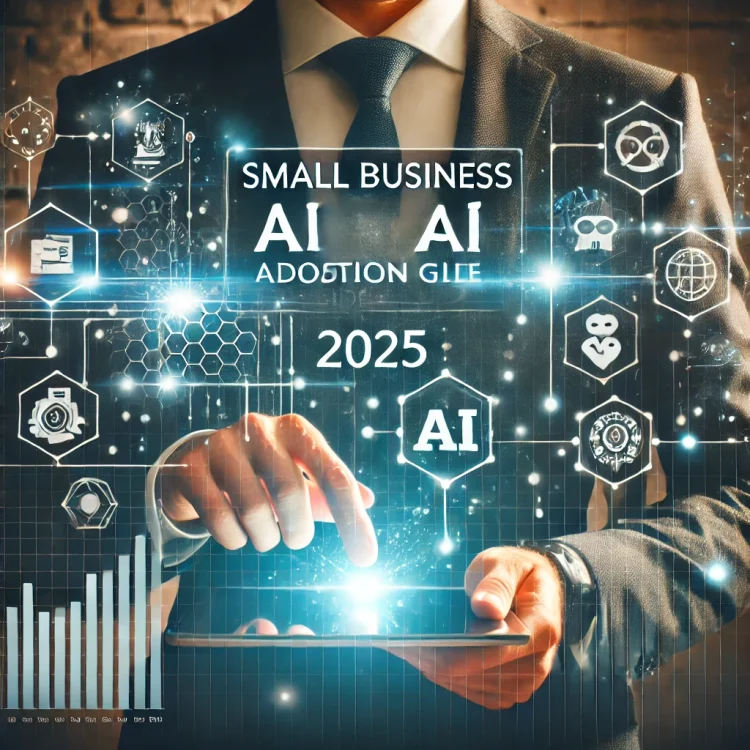
10 Essential AI Tools for Business Success in 2025: Implementation Guide
January 24, 2025
HIPAA Security Rule 2025: Major Updates and Compliance Requirements
February 4, 2025AI and Automation in Business 2025: Transform Your Operations
AI and Automation: The New Business Essential
The business landscape has undergone a dramatic transformation, and I’m here to tell you why AI and automation aren’t just buzzwords anymore—they’re essential tools for survival. According to Forbes Advisor, AI is set to contribute a staggering 21% increase to the US GDP by 2030 (https://www.forbes.com/advisor/business/ai-statistics/). This unprecedented growth reflects how deeply these technologies are reshaping business operations and why they’ve become indispensable for modern companies.
The Power of AI and Automation: Beyond the Hype
Remember when we thought AI was just for tech giants? Those days are long gone. Recent data from National University reveals that while AI might eliminate 85 million jobs by 2025, it’s creating 97 million new ones, resulting in a net positive of 12 million jobs (https://www.nu.edu/blog/ai-statistics-trends/). This isn’t just change—it’s evolution, and it’s reshaping how businesses operate at every level.
Studies show that AI could boost employee productivity by approximately 40% by 2035 (https://explodingtopics.com/blog/ai-statistics/). This remarkable increase comes from automating routine tasks, enhancing decision-making capabilities, and streamlining operations, allowing employees to focus on strategic thinking and creative problem-solving. The impact extends far beyond simple automation—it’s transforming how businesses understand and serve their customers.
Transforming Business Operations
The revolution in data-driven decision making has particularly caught my attention. Modern AI systems have eliminated the guesswork from business strategy, enabling real-time analysis of market trends, accurate prediction of customer behavior, and optimization of pricing strategies. This technological advancement has created opportunities for businesses of all sizes to compete more effectively in the global marketplace.
Customer experience has undergone a similar transformation. AI-powered systems now provide round-the-clock customer support through sophisticated chatbots, deliver personalized product recommendations, and automate marketing campaigns with unprecedented precision. The result is a more responsive, personalized business environment that benefits both companies and their customers.
Implementation: A Strategic Approach
The key to successful AI implementation lies in a thoughtful, systematic approach. The first step involves a comprehensive assessment of your current operations, identifying areas where AI can make the most significant impact. This means looking beyond simple automation opportunities to find processes that could benefit from AI’s analytical and predictive capabilities.
When it comes to choosing the right tools, the focus should be on scalable, proven solutions that integrate well with existing systems. McKinsey’s research emphasizes the importance of selecting platforms that can grow with your business while maintaining robust security protocols (https://www.mckinsey.com/~/media/McKinsey/Business%20Functions/McKinsey%20Digital/Our%20Insights/Driving%20impact%20at%20scale%20from%20automation%20and%20AI/Driving-impact-at-scale-from-automation-and-AI.ashx).
The Human Element in Digital Transformation
The success of AI implementation heavily depends on how well organizations manage the human element. This involves creating comprehensive training programs, maintaining clear communication channels, and ensuring employees understand their evolving roles in an AI-enhanced workplace. Rather than replacing human workers, AI tools are most effective when they augment human capabilities and free up time for more strategic work.
Essential Steps for Implementation Success:
- Develop a clear AI strategy aligned with business goals
- Create a comprehensive training and development program
- Establish robust data security and privacy protocols
Cost Considerations and Long-term Value
While the initial investment in AI and automation might seem substantial, the long-term benefits far outweigh the costs. According to The Business Dive, organizations implementing AI are seeing dramatic improvements in overall productivity and performance (https://thebusinessdive.com/ai-productivity-statistics). The key is to approach implementation gradually, starting with high-impact areas and scaling based on demonstrated success.
The Future of Business Operations
As we progress through 2025, the evolution of AI and automation continues to accelerate. Predictive analytics are becoming more sophisticated, automation capabilities are expanding, and customer insights are growing deeper and more actionable. This isn’t just about keeping up with competitors—it’s about positioning your business for future success in an increasingly digital world.
The integration of AI and automation represents a fundamental shift in how businesses operate. The technology has matured beyond simple task automation to become a strategic tool that can drive innovation, enhance customer experiences, and create new business opportunities. The companies that thrive will be those that embrace these technologies thoughtfully and strategically.
For more information just like this, find more of my work at https://TrustITSec.com




